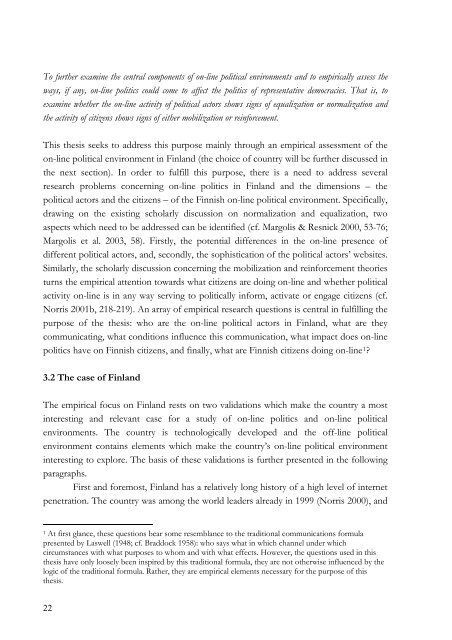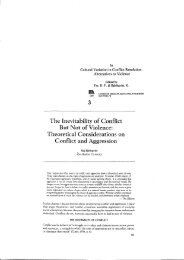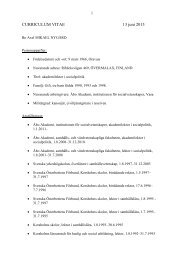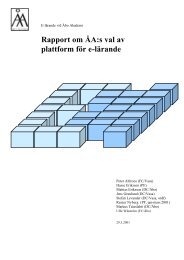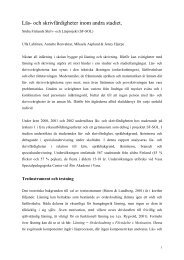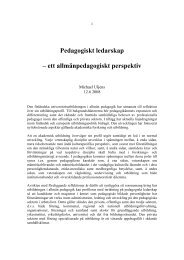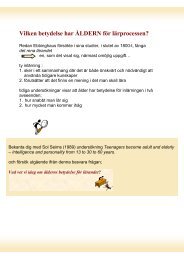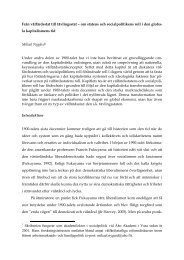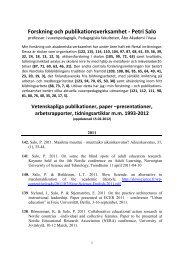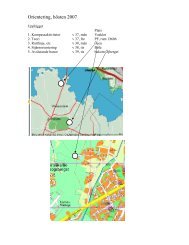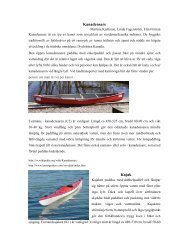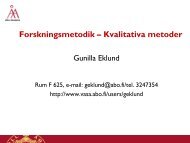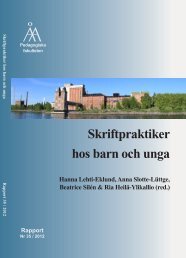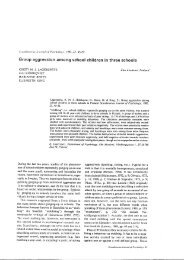Parties, Candidates and Citizens On-Line - Åbo Akademi
Parties, Candidates and Citizens On-Line - Åbo Akademi
Parties, Candidates and Citizens On-Line - Åbo Akademi
Create successful ePaper yourself
Turn your PDF publications into a flip-book with our unique Google optimized e-Paper software.
To further examine the central components of on-line political environments <strong>and</strong> to empirically assess the<br />
ways, if any, on-line politics could come to affect the politics of representative democracies. That is, to<br />
examine whether the on-line activity of political actors shows signs of equalization or normalization <strong>and</strong><br />
the activity of citizens shows signs of either mobilization or reinforcement.<br />
This thesis seeks to address this purpose mainly through an empirical assessment of the<br />
on-line political environment in Finl<strong>and</strong> (the choice of country will be further discussed in<br />
the next section). In order to fulfill this purpose, there is a need to address several<br />
research problems concerning on-line politics in Finl<strong>and</strong> <strong>and</strong> the dimensions – the<br />
political actors <strong>and</strong> the citizens – of the Finnish on-line political environment. Specifically,<br />
drawing on the existing scholarly discussion on normalization <strong>and</strong> equalization, two<br />
aspects which need to be addressed can be identified (cf. Margolis & Resnick 2000, 53-76;<br />
Margolis et al. 2003, 58). Firstly, the potential differences in the on-line presence of<br />
different political actors, <strong>and</strong>, secondly, the sophistication of the political actors’ websites.<br />
Similarly, the scholarly discussion concerning the mobilization <strong>and</strong> reinforcement theories<br />
turns the empirical attention towards what citizens are doing on-line <strong>and</strong> whether political<br />
activity on-line is in any way serving to politically inform, activate or engage citizens (cf.<br />
Norris 2001b, 218-219). An array of empirical research questions is central in fulfilling the<br />
purpose of the thesis: who are the on-line political actors in Finl<strong>and</strong>, what are they<br />
communicating, what conditions influence this communication, what impact does on-line<br />
politics have on Finnish citizens, <strong>and</strong> finally, what are Finnish citizens doing on-line 1?<br />
3.2 The case of Finl<strong>and</strong><br />
The empirical focus on Finl<strong>and</strong> rests on two validations which make the country a most<br />
interesting <strong>and</strong> relevant case for a study of on-line politics <strong>and</strong> on-line political<br />
environments. The country is technologically developed <strong>and</strong> the off-line political<br />
environment contains elements which make the country’s on-line political environment<br />
interesting to explore. The basis of these validations is further presented in the following<br />
paragraphs.<br />
First <strong>and</strong> foremost, Finl<strong>and</strong> has a relatively long history of a high level of internet<br />
penetration. The country was among the world leaders already in 1999 (Norris 2000), <strong>and</strong><br />
1 At first glance, these questions bear some resemblance to the traditional communications formula<br />
presented by Laswell (1948; cf. Braddock 1958): who says what in which channel under which<br />
circumstances with what purposes to whom <strong>and</strong> with what effects. However, the questions used in this<br />
thesis have only loosely been inspired by this traditional formula, they are not otherwise influenced by the<br />
logic of the traditional formula. Rather, they are empirical elements necessary for the purpose of this<br />
thesis.<br />
22


